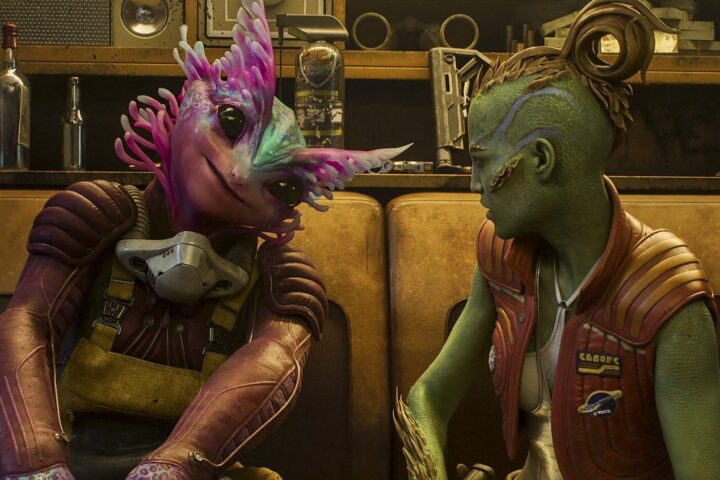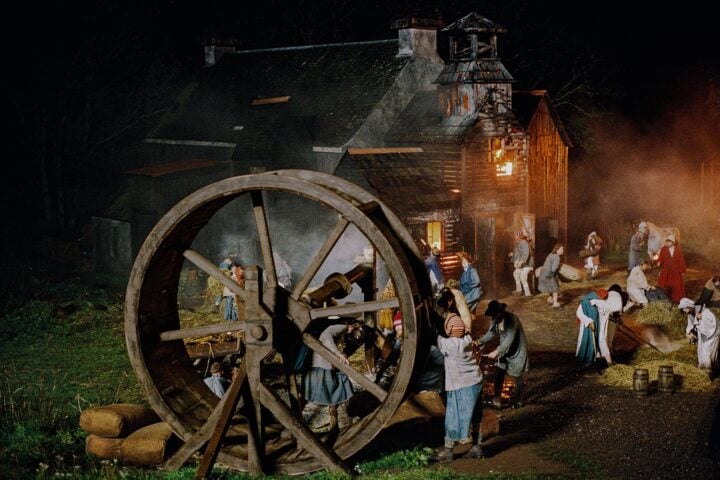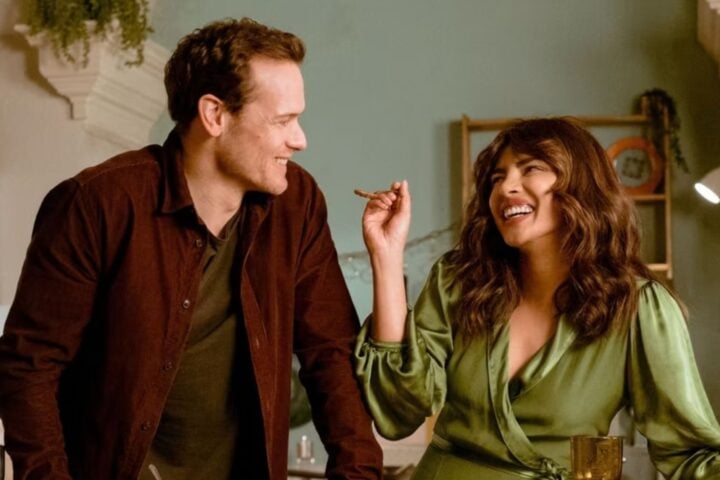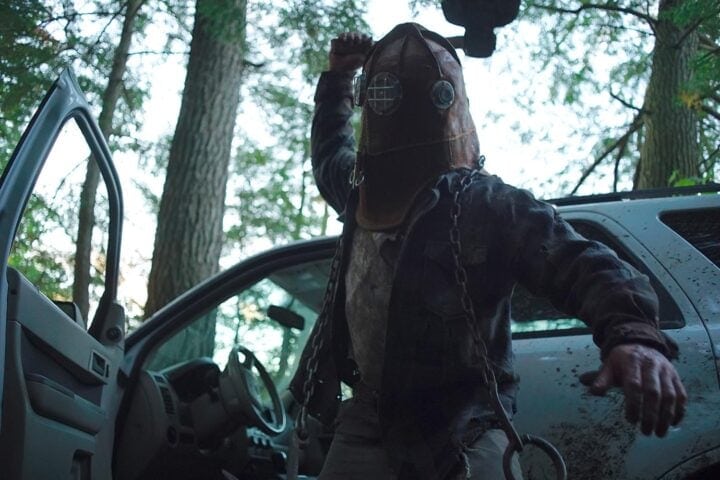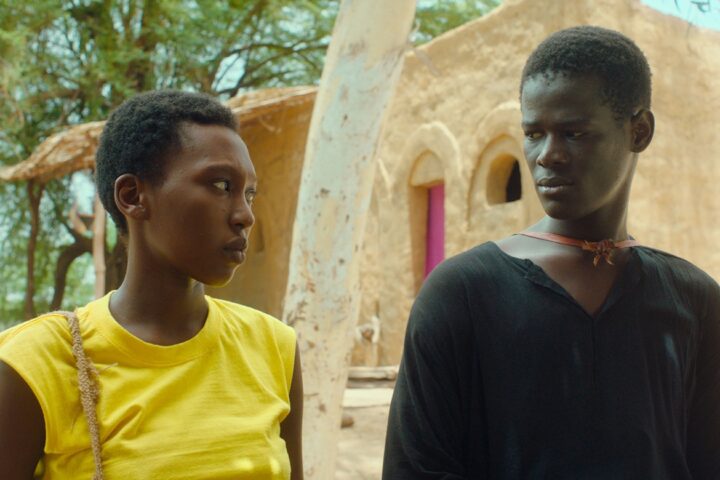“Quoth the Raven ‘Nevermore.’” With those words, over a century and a half ago, Edgar Allen Poe cemented the iconography of the bird as a metaphor for death in pitch-black ink. Though “The Raven” has hatched many cinematic imitators (including the 1935 film starring Bela Lugosi that was “suggested” by it and the 1963 film by the late Roger that more explicitly adapted it), few have carried with them the crater-like sadness that pervades the narrative poem. And while it isn’t explicitly an adaptation of “The Raven,” Daina O. Pusić’s feature debut, Tuesday, feels the weight of death’s visitation in the form of a macaw, resulting in a film of tremendous emotion, spirit, and paradoxically restraint and ambition.
Pusić’s expansive zeal for confronting the subject of dying initially takes the form of placing us in the very head of Death (voiced by Arinzé Kene), which bursts with the voices of those, ready or not, about to die. The betrayed, the elderly, the sick, the wounded create a cacophony of sound. And they all look at Death with everything but kindness—only reproachfulness, regret, fear, anger. He raises his wing, the way one would raise their cloak to mask their face, and then they’re dead. Through it all, Pusić frames it as a dirty job that somebody has to do.
But Death’s objectives are changed when he drops by Tuesday (Lola Petticrew), a bedridden girl with a terminal illness yearning for the mother, Zora (Julia Louis-Dreyfuss), who would prefer to pretend that everything is normal. While Zora is out playacting at being busy with her work as a film executive (really, though, she’s eating cheese on park benches), Tuesday is left wheezing, each breath heavier than the next, the clock of time continuing to tick out her days. Death lands in the backyard, and as opposed to fear, Tuesday responds by telling the bird a joke.
The two form a kinship built from misery and pain—and an affinity for classic rap. Pusić finds the intimacy between the two with astonishing assurance across scenes big and small, including ones in which Death, a special-effects marvel, changes size in an instant. Right down to the beady little eyes, every detail of this creation is imbued with tenderness and honesty, the bleakness inherent in its existence instead opening up space for acceptance and understanding.

It is a dirty job, as Death’s wings are caked in soot and detritus from millenia, which Tuesday helps him to clean off by giving him a bath. The voices in his head briefly subside as he commiserates with her, and Tuesday is able to buy time to at least be able to tell her mother. And when that doesn’t work, Zora must confront the meaning of death on her own terms—but not alone. Death, too, can be a shepherd. It’s a tricky, impressive aspiration: that death ultimately is both unique to each individual and yet completely banal in the scope of existence.
That Pusić has framed this as a kind of labor, allowing for a clever third-act turn about what happens when someone doesn’t do the job that has to be done to deepen its sense of spirituality and beauty, aids in the film’s depiction of Death as part of the thread of existence. A role must be fulfilled one way or the other for balance in the universe to be achieved, and knowing that, feeling it, might make the process, if not easier, then at least less difficult to negotiate.
Pusić envisions all this through a serene, stirring simplicity, her characters speaking in words laced with brittle humor and the cast small enough for the film to be a four-hander of a chamber play. (In addition to Death, Tuesday, and Zora, the cast is rounded out by Leah Harvey as Tuesday’s nurse.) Tuesday is carefully layered with a soundscape of exhalations and flapping feathers, while cinematographer Alexis Zabé’s wide frame both amplifies the claustrophobia of the house Tuesday is stuck in as well as the vastness of the world outside.
Zora’s struggle to accept Death in her own life is conveyed with understated beauty and conviction by Louis-Dreyfus—the tension between the life that she wishes she were leading with her daughter and the stark reality of mortality always etched across her face. And while Death might easily spell paralysis and stasis, the winged creature reminds her, and us, of another truth. Because in the chalky, gravelly timbre of Kene’s voice, Pusić best captures the contradictory devastation and grace of Death: that nevermore is just another beginning.
Since 2001, we've brought you uncompromising, candid takes on the world of film, music, television, video games, theater, and more. Independently owned and operated publications like Slant have been hit hard in recent years, but we’re committed to keeping our content free and accessible—meaning no paywalls or fees.
If you like what we do, please consider subscribing to our Patreon or making a donation.


